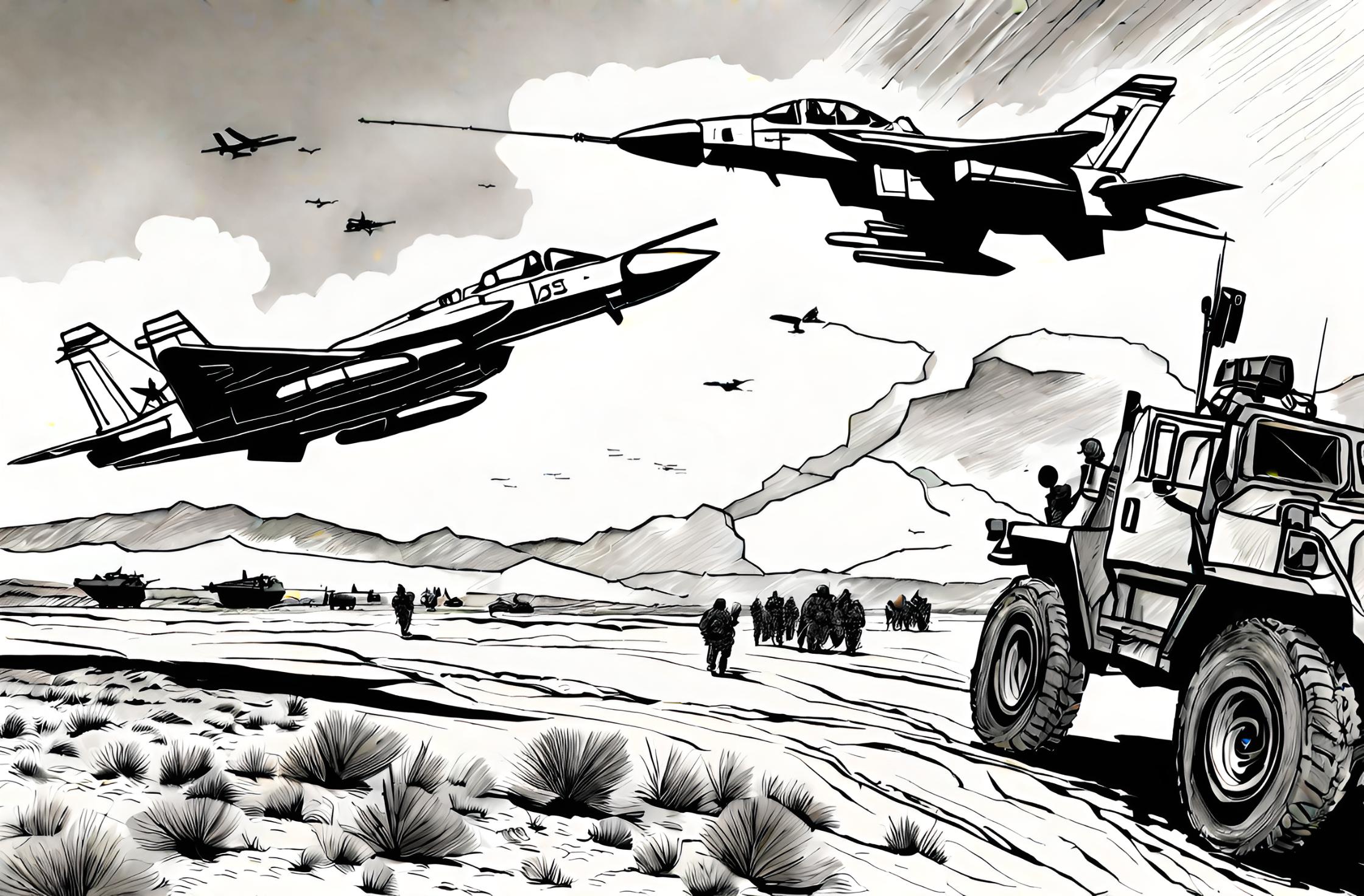Flashback to September 4
World History

1996
The US launches Operation Desert Strike against Iraq in reaction to the attack on Arbil
Read moreOn September 3, 1996, a critical event unfolded, changing the course of United States’ eventful history with Iraq. In response to the invasion of Arbil by Iraq, the U.S. initiated a significant military intervention, known as Operation Desert Strike. The retaliation underscored the intricate dynamics between the two nations and marked a pivotal moment in their strained relations. Through meticulous examination of this episode, it’s clear to see how influential this event has been in shaping global politics.
As part of a larger conflict, the attack on Arbil in Northern Iraq triggered significant international response. Saddam Hussein’s forces swarmed the city, violating the safe haven granted to Iraqi Kurds. This invasion of Arbil sparked outrage worldwide, subsequently leading the U.S. to launch Operation Desert Strike as a direct, assertive response to the incursion.
Operation Desert Strike set a new precedent for international relations and defense strategies. The U.S. administration ordered massive cruise missile strikes against designated military targets in Southern Iraq. The operation aimed to weaken Iraq’s capacity for future attacks while signaling the United States’ commitment to the cause and drawing a line in the sand.
Critically, the U.S. expanded the no-fly zone, moving it southward from the 32nd to the 33rd parallel, amplifying the area of assisted protection for the Kurds. With this move, the U.S. expressed explicit concern for human rights violations happening within Iraq. The US amplified its capacity to monitor and act on any further incidents with the ability to station its forces closer to Baghdad, a strategic win for future responses.
Operation Desert Strike epitomized the idea that unilateral decisions of countries can disrupt the norms of international politics. The particular action taken by the U.S. underlined its position as a global peacekeeper. It also shed light on the struggles faced by minorities like the Kurds, who were caught in the crossfire of superior powers, thereby catalyzing global discourse on human rights.
Moreover, the operation testified to the role of technology in warfare. The use of advanced weaponry, such as the Tomahawk cruise missile launched from U.S. Navy ships and submarines, reflected the evolving face of conflict. It was the age where information, intelligence, and technology were fundamental elements of warfare tactics, chiseling the path for future engagements on similar lines.
Following the operation, the U.S. was intensely scrutinized, leading to debates about its foreign policies. Critics argued about the effectiveness of unilateral sanctions without sufficient support from Allied nations. Nevertheless, the U.S. remained resolute in its strategies, making it clear that it wouldn’t hesitate to deploy potent force to maintain regional stability and protect its interests.
Throughout the years, the impact of Operation Desert Strike has rippled through the international landscape. It not only shaped the nature of U.S. foreign policy but also influenced perceptions about power dynamics in global politics. It is a noteworthy example of a major power utilizing its military might to enforce international norms and security policies.
The U.S. response to the 1996 attack on Arbil, Iraq, with Operation Desert Strike, is a significant milestone in the arc of global politics, showcasing the U.S.’s willingness to use forceful means to counteract breaches of international norms and human rights. This incident offers a reaffirmation – the world in which we live does not exist in black and white but rather in varying shades of grey. It provides us with an understanding of nation-states, their motivations, and the dynamics that dictate their actions in the international arena.
We strive for accuracy. If you see something that doesn't look right, click here to contact us!
Sponsored Content

The Great fire of…
Experience the harrowing tale…

Northeast Nicaragua takes a…
On September 4th, 2007,…

US troops land in…
On September 4, 1918,…

German forces capture Bydgoszcz…
On September 4, 1939,…

The Senese Ghibellines, supported…
On September 4th, 1260,…

Rodi avalanche destroys Plurs…
The catastrophic Rodi avalanche…

